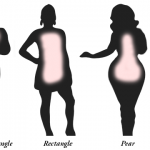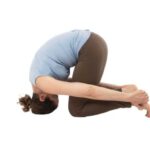While yoga originated from India with suggested regions, including the Indus Valley Civilization around the 3300-1900 BCE, it has expanded and grown all over the world.
Today, you will find yoga practitioners worldwide, and as a group of mental, physical, and spiritual disciplines, yoga has incredible diversity to offer to all those who desire a healthy lifestyle. For some, yoga goes even deeper, and avid practitioners would tell you that yoga is not just exercise but also a way of life. According to a recent yoga study, over 55 million people around the world started practicing yoga for the first time in 2020. Furthermore, around 44% of all yoga practitioners spend time doing yoga at least 2-3 times per week and spend an average of $90 per month on yoga. Moreover, 37% of yoga enthusiasts have children that also enjoy practicing yoga with their parents.
Simply put, more and more people are rolling out their yoga mats, and it doesn’t seem to just be a passing trend. More people are realizing there are vast benefits to a regular yoga practice, and making it a priority to practice. That said, for newcomers, there are still a lot of untrue myths about yoga. Let’s take a look at some common yoga myths and debunk them.
All Teachers and Styles of Yoga Offer the Same Thing
Yoga is too broad and comprehensive a body of knowledge to be mastered completely by a single yoga specialist. In fact, many yogi experts often focus on several types of yoga types and not all of them have the same teaching method. Hence, if you think a single guru could offer you all the knowledge of yoga, it’s not really true or possible. Some of the common styles include these below, but note there are countless styles, with new ones being born each year:
Anusara Yoga – modern yoga, focus on mind-body-heart connection
Ashtanga Yoga – Eight Limb Path, linking breath to movement
Bikram Yoga – sequence of set poses in a sauna-like room
Hatha Yoga – focuses on physical postures and holding the physical postures of yoga
Iyengar Yoga – focuses on alignment with detailed and precise instruction
Jivamukti Yoga – infused with Hindu spiritual teachings
Kundalini Yoga – equal parts spiritual and physical
Prenatal Yoga – tailored for women who are moms to be
Restorative Yoga – focuses on body relaxation
Vinyasa Yoga – one of the most athletic types of yoga
Yin Yoga – slow-paced style yoga with seated postures and long holds
Yoga is Bound to Religion
There are people out there who consider yoga as only appropriate if you are bound to a particular religion. While there is no doubt that yoga shares a wide variety of practices and goals found in Buddhism, Hinduism, and Jainism, yoga is more akin to science that unites everyone under the banner of wellbeing.
Yoga is, therefore, free from all sorts of discrimination of caste, creed, color, race, or ethnicity. It offers the means to attain wellbeing and integrate the human body with the mind and the spirit.
Flexibility is a Prerequisite
A lot of social media for yoga makes people think that yoga is only for flexible people. This is far from the actual truth. While social media feeds these days about yoga are overflowing with incredibly athletic-looking people in hard to try poses, this isn’t what yoga is all about.
In fact, yoga is for everyone, and especially for those who consider themselves inflexible. The entire focus of yoga is to help you accomplish flexibility in your body and your mind and soul. Plus, there are various asanas out there that you can readily try while simply being seated.
Yoga is not a Workout
This happens when people know too little about something or are simply quick to judge a book by its cover. Yoga can actually be a rigorous workout, that will have you covered in sweat, and challenge you. Plus, yoga does more than burn calories, it also tones to your muscles. It is a full body, mind, and spirit workout.
Yoga is Not for Asthmatics
Some people believe that yoga can be bad for those who have asthma. However, there are many styles of yoga that actually help people suffering from asthma.
There are numerous asanas and pranayama practices out there that can truly assist people with asthma to overcome their ailments and gain incredible physical and mental strength from the practice of yoga. This myth is hurting those who can actually benefit from yoga practice.
Yoga is Only Physical Postures
While it’s quite hard to deny that yoga postures do look incredibly beautiful, the true practice of yoga is about the mind and elevating your consciousness at a much deeper level. Yoga is a unifier of your mind, emotions, and body. It helps you find happiness and contentment in life, reduces stress, and clears your mind to realize your goals. It is great for unwinding and enabling you to find peace and tranquility in yourself. While it is a mainly physical practice, meditation and breathing exercises are yoga also.
Yoga is for the Young
Yoga is not just limited to any particular age bracket. In fact, there are many yoga for seniors classes that focus specifically on the health and wellbeing of older people. When someone only thinks about the asanas in yoga, this misconception is bound to rise. Yoga is for everyone, irrespective of age.
There are examples of people more than 60 years of age start practicing yoga who find their way to perform complex asanas, including the likes of Shirshasana and Sarvangasana with relative ease and perfection. Practice does make perfect, and yoga is not different in that aspect.
Yoga is Only for Women
Lastly, there is this misconception that yoga is only good for women. While predominantly yoga is practiced by women more however men are quickly debunking this claim. In the US, around 25% to 35% of yoga practitioners are men, and their numbers are growing every year. Plus, you also have yogis and yoga experts who teach yoga classes for men.
Yoga is a worldwide phenomenon, and by the 1980s, it became widely popular in many western societies. However, as things become popular and well-known amongst the masses, myths and misconceptions about the practice grew as well.
The above are some of the common myths of yoga that are actually not true at all. With any luck, I wish that you see yoga as a complete system for all of humankind that is not bound by race, creed, or gender.



